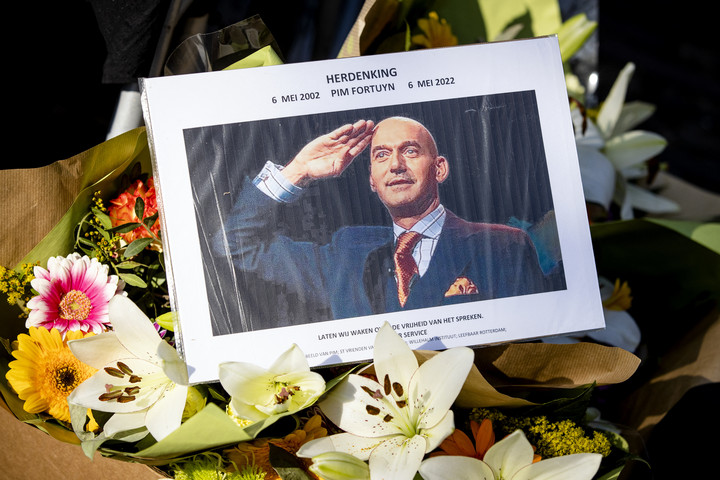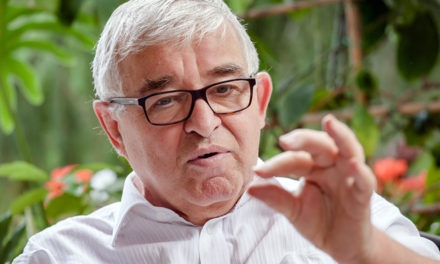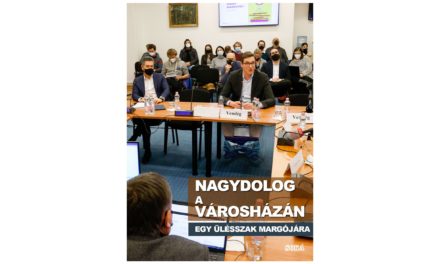This is proven by the case of Pim Fortuyn, who was murdered because he opposed the settlement of migrants.
Panic and nervousness took hold in Brussels after the party of anti-immigration Geert Wilders won yesterday's Dutch parliamentary elections. Eurocrats fear a repeat of the flare-up of anti-migrant sentiment two decades ago, led by Pim Fortuyn, whose party could have won the parliamentary election nine days after his death had he not been assassinated.
It would not surprise me for a minute if, after the current elections, the monthly payment for the life insurance of Geert Wilders, the leader of the winning Freedom Party, was increased.
Because, as they say, being an anti-immigration politician is not life insurance in the Netherlands.
Twenty-one years ago, on May 6, 2002, in Hilversum, in the parking lot in front of the 3FM radio editorial building, six shots were fired from a Star FirestarM43 semi-automatic pistol, five bullets hit the target, four in the chest, one in the head, the target, Pim Fortuyn, died instantly.
But who was Pim Fortuyn and why was he the victim of such a brutal murder. The writer, publicist, sociologist was a rather colorful individual in Dutch domestic politics. His official name was Wilhelmus Simon Petrus Fortuijn, but only a few people knew him because he became popular in public life as Pim Fortuyn.
After completing his university studies and obtaining his doctorate, he traveled the streets of the left, was a Marxist sociology teacher, joined the Dutch Labor Party, but eventually turned his back on all of this and founded the Pim Fortuyn Listája (LPF) party.
Pim Fortuyn realized that the problems of Dutch society will not be solved by Marxism, but by banning illegal immigration to his country. Illegal migration was already a problem in the Benelux, although not as much as it is today.
The slogan of the new party was to stop Muslim immigration to the Netherlands. Pim Fortuyn may have signed his own death warrant then.
Her killer was a certain far-left activist Volkert van der Graaf, who planned the murder well in advance. He planned the attack based on information obtained from the Internet. A map of the scene of the crime was found in his car and a list of Fortuyn's programs was also found in the car. He waited two hours in the parking lot for Pim Fortuyn to finish the interview, holding the pistol through a plastic bag so that his fingerprints would not be found on the gun. After the murder, Graaf was arrested, the court sentenced him to 18 years in prison, but he was released on parole after 12 years.
Graaf confessed to the murder in court. Then he came out with his fart, because he gave as a reason for the assassination that Fortuyn was using Muslims and immigrants as scapegoats in the parliamentary election campaign in order to gain political power. The murder happened nine days before the parliamentary elections.
After all, Fortuyn had to die because he wanted to stop Muslim immigration and expel the foreigners who were already there from the Netherlands. However, there is a very obscure part of the story that has not been revealed until now.
Namely, that before the 2002 Dutch parliamentary elections, all surveys showed that Pim Fortuyn and his party would win the vote, just as Geert Wilders and the Freedom Party did in the current vote. The election was held on May 15, 2002, and Pim Fortuyn's List, which had only existed for a few months at the time, did not win the political test of strength, coming in second place, gaining 26 representatives to the 150-member parliament. This result was enough to upset the balance between the major parties in the legislature, leading to a protracted government formation crisis.
There is a reasonable suspicion that the traditional parties did not want to form a coalition government so that the LPF, left without a leader, would depreciate due to internal disputes. The tactic worked, because in the early parliamentary elections of 2003, the LPF was able to get only eight representatives into the legislature, and thus became strongly marginalized in Dutch political life.
The other suspicious circumstance is that although Graaf took it upon himself to commit the murder, the police investigation stopped here.
The investigating authority ruled out any conspiracy theory right from the start. Since we don't know anything about this, it could still have arisen that there could have been instigators in the background who could have taken advantage of Graaf's unstable personality.
Featured image: Sem van der Wal / ANP MAG / ANP via AF P












